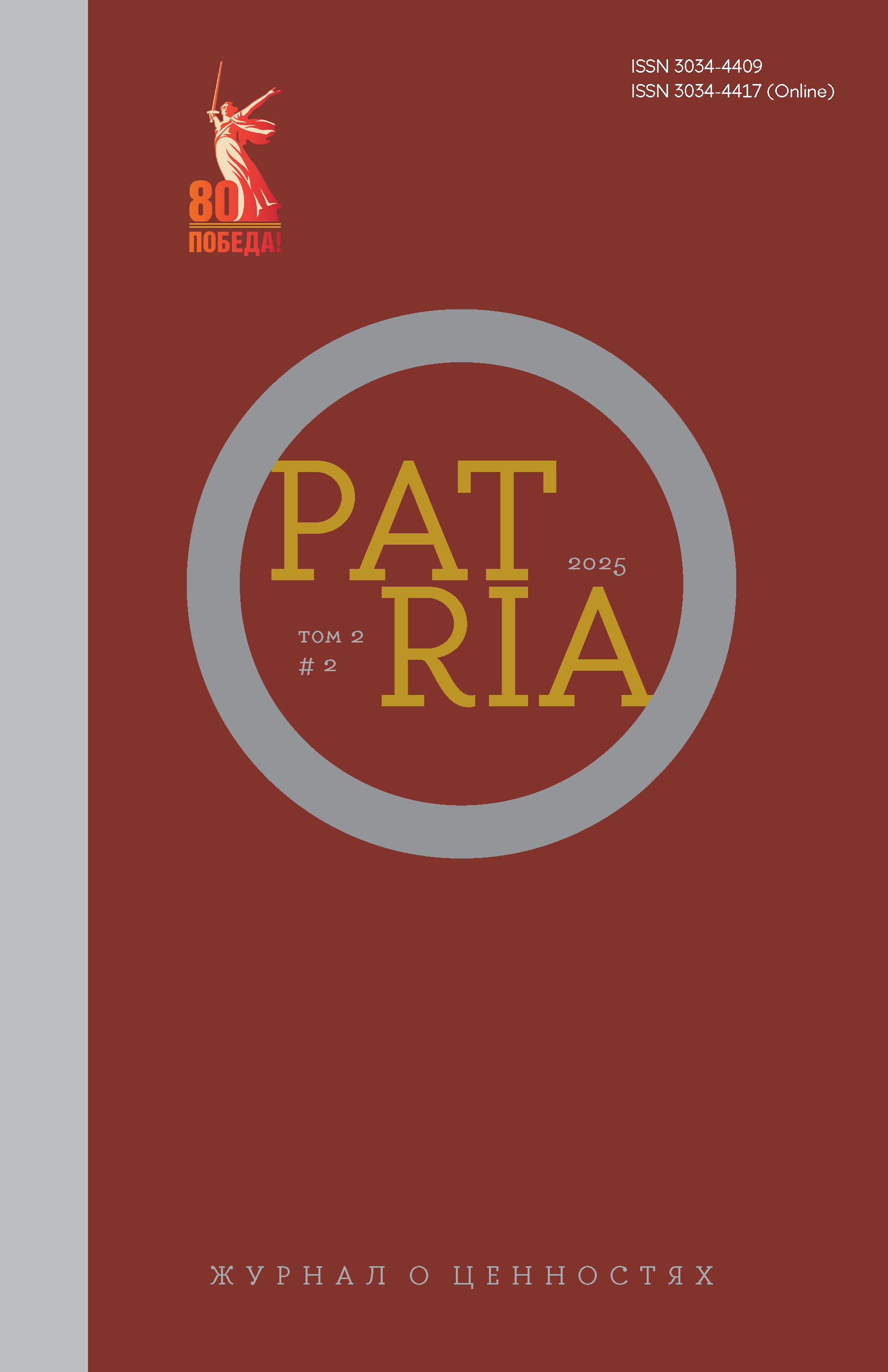“From Marxism to Idealism” — and to the Spiritual Search: The Trajectory of the Movement of Critical Marxists at the Beginning and the Third Quarter of the 20th Century
Abstract
The article attempts to trace out a line of continuity between the Critical Marxism of the early 20th century and the Critical Marxism of the third quarter of the century. The author shows how representatives of Critical or Legal Marxism (Sergei Bulgakov, Nikolai Berdyaev, Mikhail Tugan-Baranovsky) became fascinated by Marxism, trying to find in it a way out of the socio-political crisis and an answer to the eternal Russian question about what is to be done. Critical Marxists sought to complement Marxism or ‘‘Economic Materialism’’ with a universal, human and Christian ethics. As a result, this led them to idealism, liberalism and even to disappointment in Marxism. Such disillusionment was accompanied by, among other things, a movement towards religious thought. A similar trajectory of movement (from Marxism to idealism, and to religious quest) was repeated in the Critical Marxism of the ‘‘ottepel’’ period. After the dominance of the official party ideology, numerous philosophical circles, different interpretations, discussions, expectations and hopes for the future began to appear again, as at the turn of the 19th and early 20th centuries. Once again, the intelligentsia of these circles, turned to an ethical, moral and religious rethinking of Marxism. For instance, Critical Marxist Evald Ilyenkov and his disciple Genrikh Batishchev emphasized the role of a comprehensively developed, creative and critically-thinking individual. Even dialectical logic in their approach became a kind of struggle for the critically-thinking individual, as well as an optimistic belief in progress and the power of upbringing, culture, and education. Towards the end of the Soviet project, Critical Marxists began to pay increasing attention to ideas of self-culture, interpreting revolutionary practice as a self-improvement practice.
Downloads
References
Abovin-Egides Ja., Podrabinek Ja. (1980) “Several Current Problems of the Democratic Movement in Our Country”, Poiski (https://vtoraya-literatura.com/pdf/poiski_2_1980__ocr.pdf, accessed on 19.12.2024).
“At the Religious and Philosophical Seminar” (1979), Chasy, no. 20 (samizdat.wiki/images/e/eb/ChASY20-13-Na-religiozno-filosofskom-seminare.pdf, accessed on 19.12.2024).
Bakhurst D. (1991) Consciousness and Revolution in Soviet Philosophy: From the Bolsheviks to Evald Ilyenkov, Cambridge: Cambridge University Press.
Batishchev G. (2015) Selected Works, Almaty: Institut filosofii, politologii i religiovedenija KNMON RK.
Berdyaev N. (1990) The Origin of Russian Communism, Moscow: Nauka.
Berdyaev N. (2008) Subjectivism and Individualism in Societal Philosophy, Moscow: Astrel’.
Bulgakov S. (1903) From Marxism to Idealism, Saint Petersburg: Obshchestvennaja pol’za.
Bulgakov S. (1993) Selected Works, in 2 vols, Moscow: Nauka.
Bulgakov S. (2009а) “Basic Problems of the Theory of Progress”, Manifestos of Russian Idealism, Moscow: Astrel’.
Bulgakov S. (2009б) Philosophy of Economy, Moscow: INR.
Chekhov A. P. (2014) Uncle Vanya, Moscow: DA!Media.
Dmitrieva N. (2007) Russian Neo-Kantianism: ‘‘Marburg’’ in Russia, Moscow: ROSSPEN.
Eaton H. (1980) “Marx and the Russians”, Journal of the History of Ideas, vol. 41, no. 1, pp. 89–112.
Fedotov G. (1992) “Tragedy of the Intelligentsia”, The Fate and Sins of Russia, Saint Petersburg: Sofija.
From the Old to the Young (1960), Munich: Izd. COPJe.
Granovsky V. (2022) “The Prophet of the Failed Reformation”, Vestnik Svjato-Filaretovskogo Instituta, vol. 43, pp. 181–198.
Ilyenkov E. (1983) Where Does Personality Begin, Moscow: Izd-vo politicheskoj literatury.
Ilyenkov E. (2020) Concept of the Ideal, vol. 3, Moscow: Kanon+: ROOI ‘‘Reabilitacija’’.
Leont’eva O. (2004) Marxism in Russia at the Turn of the 19th and 20th Centuries, Samara: Samarskij universitet.
Mezhuev V. (1997) “Evald Ilyenkov and the End of Classical Marxist Philosophy”, The Drama of Soviet Philosophy. Evald Ilyenkov: The Dialogue Book, Moscow: IF RAN.
Nethercott F. (2022) “The Intelligentsia Is Dead, Long Live the Intelligentsia! Alexander Solzhenitsyn on Soviet Dissidence and a New Spiritual Elite”, Russian Literature, vol. 130, pp. 29–50.
Novikova L. I., Sizemskaya I. N. (1999) Russian Philosophy of History: Lecture Course, Moscow: Aspekt Press.
Problems and Discussions in the Philosophy of Russia in the Second Half of the 20th Century: A Modern View (2014), V. A. Lektorsky (ed.), Moscow: ROSSPEN.
Resis A. (1970) “Das Kapital Comes to Russia”, Slavic Review, vol. 29, no. 2, pp. 219–237.
Slonimskij L. (2008) “Our Strands of Thought”, Berdyaev N. Subjectivism and Individualism in Societal Philosophy, Moscow: Astrel’.
Sokirko V. (1983) “For the Sake of Russia”, Poiski, no. 5–6 (https://vtoraya-literatura.com/pdf/poiski_5-6_chast_1_1983__ocr.pdf, accessed on 19.12.2024).
Tugan-Baranovsky М. (1996) Towards a Better Future, Moscow: ROSSPEN.
Tugan-Baranovsky M. (2010) Selected Works, Moscow: ROSSPEN.
Copyright (c) 2025 HSE University

This work is licensed under a Creative Commons Attribution 4.0 International License.



